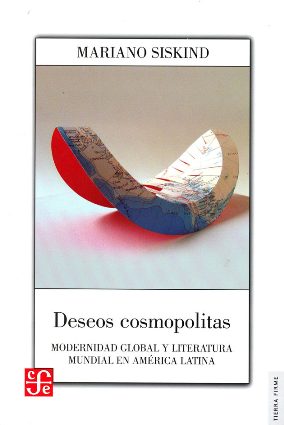Imaginarios globales y cartografías cosmopolitas: la modernidad literaria latinoamericana
Keywords:
Latin American Literature, World Literature, Cosmopolitanism, NationalismAbstract
The book of the literary critic Mariano Siskind, Deseos cosmopolitas. Modernidad global y literatura mundial en América Latina, is inscribed in the debate for the functioning of the categories of cosmopolitanism and nationalism in the Latin American literature. The author argues that the "world" is presented as a desire for the Latin American writer as an epistemological exercise of exploration of otherness. To unfold this hypothesis, the book focuses on the analysis of two paradigmatic periods in the conformation of a cosmopolitan discourse in the literature of the continent: Modernism and Magical Realism. One of the central objectives of the book is to situate the analysis of global imaginaries and cosmopolitan cartographies of Latin American writers in the current debates about World Literature. To support this decision, the author elaborates a critique of the pedagogical practices linked to World Literature studies (with special reference to the North American university system) because they assume a universal and essentialist perspective. Finally, it is highlighted that the book denounces the scarce participation of Latin America (as a corpus, as a field of study and as a locus of enunciation) in debates about World Literature and imposes a work to think about the marginal specificity of the Latin American literature and the redefinition of global relations between institutions and imaginaries.Downloads

Downloads
Additional Files
Published
Issue
Section
License
Authors who have publications with this journal agree to the following terms:
a. Authors will retain their copyright and grant the journal the right of first publication of their work, which will simultaneously be subject to the Creative Commons Attribution License that allows third parties to share the work as long as its author and first publication in this journal are indicated.
b. Authors may adopt other non-exclusive license agreements for distribution of the published version of the work (e.g., deposit it in an institutional telematic archive or publish it in a monographic volume) as long as the initial publication in this journal is indicated.
c. Authors are allowed and encouraged to disseminate their work through the Internet (e.g., in institutional telematic archives or on their web page) after the publication process, which may produce interesting exchanges and increase citations of the published work (see The effect of open access).

